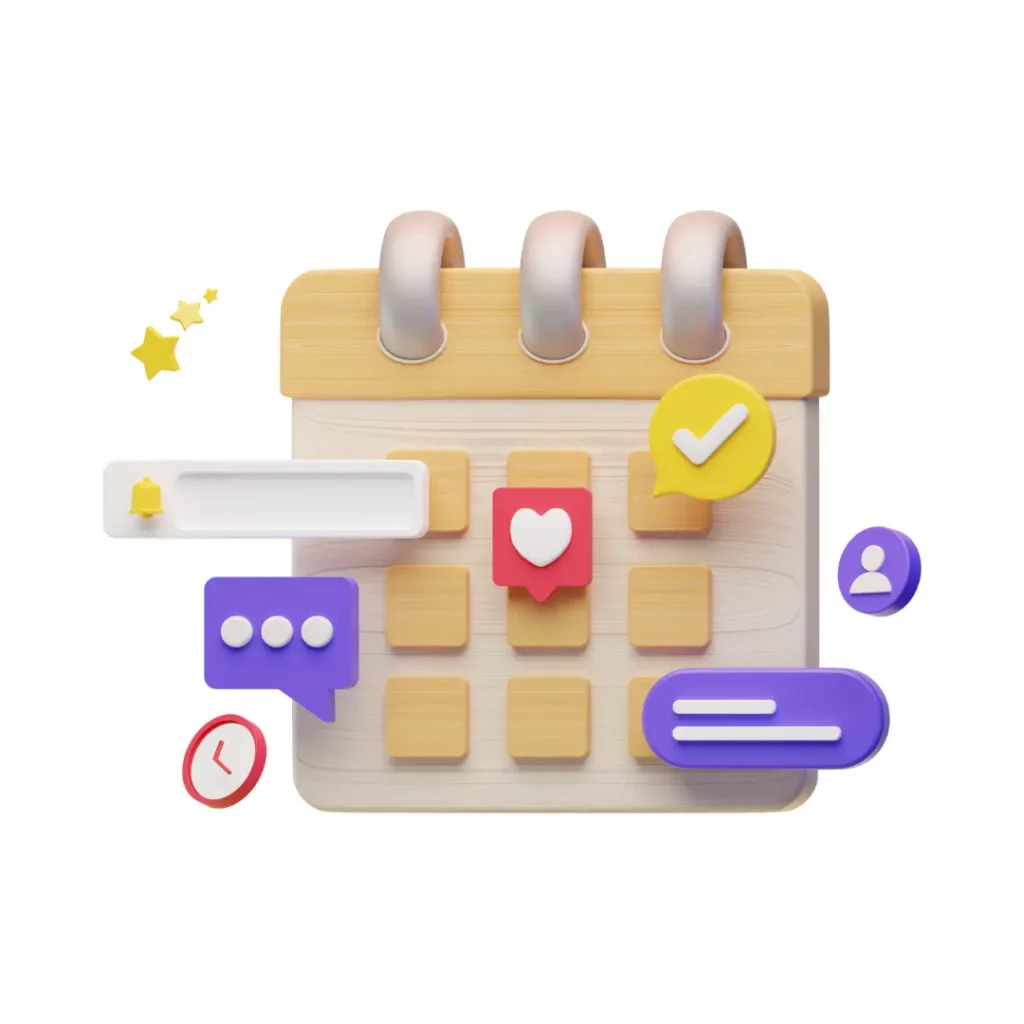In the fast-paced world of healthcare, staying organized and consistent with your social media efforts is crucial. A well-planned social media calendar for healthcare marketing can help you maintain a steady online presence, engage with your audience, and ensure that your content aligns with your marketing goals.
Why a Social Media Marketing Calendar For Healthcare is Essential

A social media marketing calendar for healthcare serves as a roadmap for your online content. It allows you to plan and schedule posts in advance, ensuring that your messaging remains consistent and aligned with your overall marketing strategy. This proactive approach helps avoid last-minute scrambling and ensures that your content resonates with your audience.
Benefits of Using a Social Media Calendar for Healthcare Marketing
1. Consistency in Posting
Consistency is key to building trust and keeping your audience engaged. A social media calendar for healthcare helps you plan content in advance, ensuring that you post regularly and maintain a consistent online presence.
2. Strategic Content Planning
A well-organized calendar allows you to align your content with important dates, events, and healthcare awareness days. This strategic approach ensures that your content is relevant and timely, which can increase engagement and reach.
Steps to Creating an Effective Social Media Calendar for Healthcare
1. Define Your Goals
Start by defining the goals of your healthcare social media marketing efforts. Whether you aim to increase patient engagement, drive traffic to your website, or educate your audience, having clear objectives will guide your content planning.
2. Identify Your Target Audience
Understanding your target audience is crucial for creating content that resonates. Consider factors such as age, gender, location, and health concerns when planning your posts. This ensures that your messaging is relevant and effective.
3. Choose the Right Platforms
Not all social media platforms are created equal, and different platforms serve different purposes. For healthcare providers, platforms like Facebook, Instagram, and LinkedIn are particularly effective for reaching and engaging with patients and professionals alike.
4. Plan Your Content
Once you have your goals, audience, and platforms in place, it’s time to start planning your content. Use a mix of content types, such as educational posts, patient testimonials, and behind-the-scenes looks at your practice, to keep your audience engaged.
Examples of Social Media Calendar for Healthcare
Creating a healthcare social media marketing calendar can seem daunting, but breaking it down into manageable parts can make the process easier. Here are some examples of how to structure your calendar:
- Weekly Themes: Focus on specific themes for each week, such as “Mental Health Mondays” or “Wellness Wednesdays.” This approach helps you create consistent content that your audience can look forward to.
- Awareness Days: Plan content around health awareness days and months, such as World Heart Day or Breast Cancer Awareness Month. This allows you to align your messaging with larger campaigns and engage with trending topics.
- Educational Series: Create a series of educational posts that provide valuable information on specific health topics. This not only educates your audience but also positions your practice as a trusted source of information.
Tools for Creating a Social Media Calendar for Healthcare
Several tools can help streamline the process of creating and managing your healthcare social media marketing calendar. Tools like Hootsuite, Buffer, and Trello allow you to schedule posts in advance, track engagement, and collaborate with your team.
Tips for Maintaining Your Social Media Calendar for Healthcare
1. Review and Adjust Regularly
Your social media calendar for healthcare Marketing is not set in stone. Regularly review your calendar to see what’s working and what isn’t, and be prepared to adjust your strategy as needed.
2. Stay Flexible
While planning is important, it’s equally important to stay flexible. Be prepared to adjust your calendar in response to current events, new health trends, or changes in your practice.
3. Collaborate with Your Team
If you’re working with a team, make sure everyone is on the same page. Use collaborative tools to ensure that everyone can contribute to and access the calendar, making the process smoother and more efficient.
Summary
A social media calendar for healthcare is an essential tool for maintaining consistency, strategic content planning, and effective patient engagement. By following these steps and examples, you can create a calendar that supports your marketing goals and helps you connect with your audience in meaningful ways.
FAQs
1. What is a social media calendar for healthcare marketing?
A social media calendar for healthcare marketing is a strategic tool that helps plan and schedule social media content for healthcare providers. It ensures consistent posting and aligns content with marketing goals and key dates.
2. Why is a social media calendar important for healthcare marketing?
A social media calendar helps maintain consistency, improves content planning, and ensures timely engagement with your audience. It allows healthcare providers to stay organized and align their messaging with relevant health events and awareness days.
3. What types of content should be included in a social media calendar for healthcare?
Include a mix of educational posts, patient testimonials, health tips, and practice updates. Incorporating content related to health awareness days and themed weeks can also enhance engagement.
4. How often should I update my social media calendar for healthcare ?
Regularly review and update your calendar, ideally on a monthly or quarterly basis. This helps adapt to new trends, address performance insights, and ensure content remains relevant and timely.
5. What tools can help manage a social media calendar for healthcare marketing?
Tools like Hootsuite, Buffer, and Trello are effective for scheduling posts, tracking performance, and collaborating with your team. These tools simplify the management of your social media strategy.


This blog was very helpful for me.